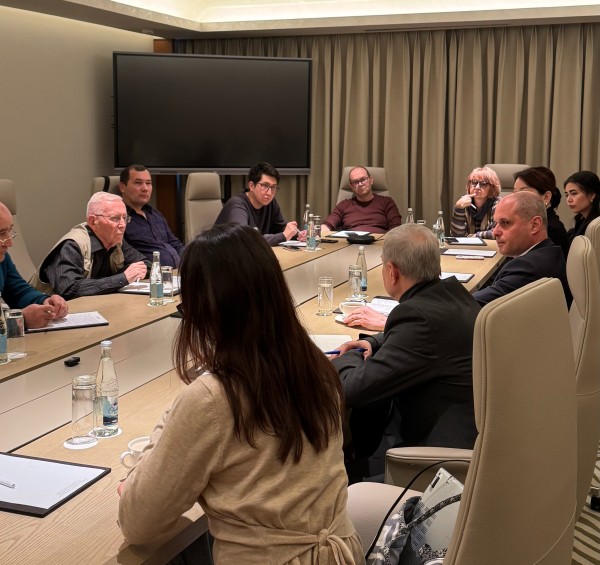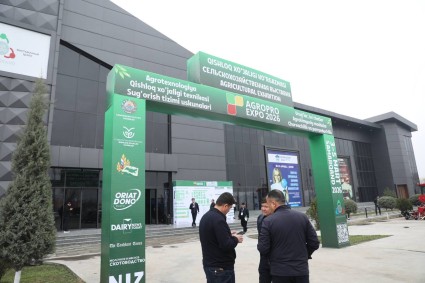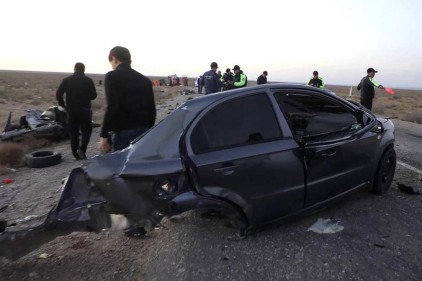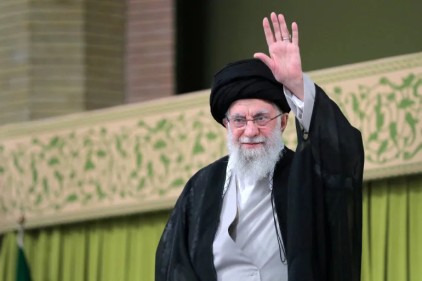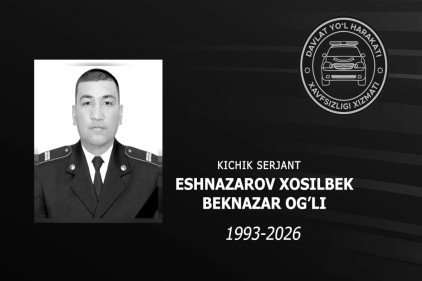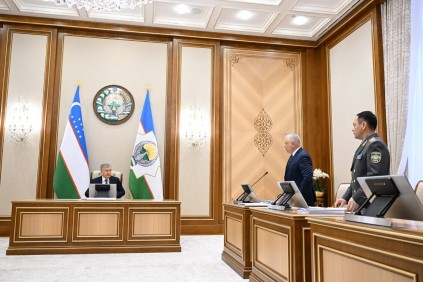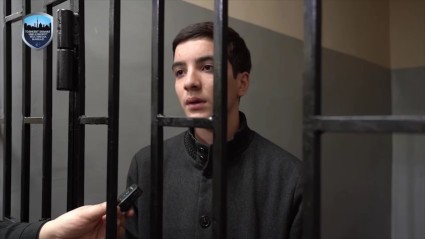The Commander of the Central Commander of the United States General Michael E. Kurilla Visits Uzbekistan. He shared his thoughts: "Today, I had a great series of engagements here in Tashkent, with President Mirziyoyev, Secretary of the National Security Council Makhmudov, General Lieutenant Qurbonov, General Major Khalmuhamedov, and the leadership of the Armed Forces of the Republic of Uzbekistan. These were important, high-level discussions regarding the major topics of concern for both militaries.
Yesterday, I had the great honor of visiting Samarkand to observe the incredible culture and history of the Uzbek people. The Uzbek people have a proud warrior tradition, a fascinating heritage of accomplishments, and such important historic figures as Amir Timur and Mirza Ulugh Beg. This beautiful land is home to some of the most important scientific, artistic, scholastic, and social contributions in all of world history.
Spending this time among the Uzbek people was so insightful for me. No one can get a sense of a people’s culture from a meeting in an office. No one can begin to understand a complicated, courageous, wondrous society from a video teleconference on the other side of the world. Instead, to truly to begin to understand Uzbekistan, you must see the dances and hear the songs of its many regions, you must see the sweat of the horses competing in Kopkari, you must observe the incredible Registan architecture.
During my visit, I was so intrigued with the skill, athleticism, and toughness of the Kopkari players that I committed to returning this year during the cooler months to participate in a game myself.
These cultural engagements in Samarkand were perfect for me, as were today’s discussions. After all, my priority here was the establishment of relationships that we will need as we build on the security of the region. Uzbekistan is a leader in the region and security of Uzbekistan is security of the region.
This visit is part of what I refer to as my “listening tour”: visits to the countries in the CENTCOM Area of Responsibility. I want to hear from each country’s leadership about the threats they face, the gaps in the relationship, and most importantly, the opportunities ahead to strengthen our partnership. At the end of this tour, I will submit my 90-day assessment to the US leadership. This is an initial written review of my observations in the region. As I am writing the assessment, I want to ensure it represents more than my sole voice, that it also includes the voice of our Uzbek partners and diplomats. So, I have been making my observations, but not from our headquarters in the United States; from in-person and face-to-face.
My two-day visit here also included formal meetings and candid discussions with the top leaders in Uzbekistan. Throughout all these activities, events, and engagements, I was accompanied by General Major Khalmuhamedov, Chief of the General Staff. At each stop, to include throughout our tour of Samarkand, we discussed many important issues of concern for both of our forces.
During our discussions, we sought opportunities for our militaries to share lessons learned from our combat experience earned over a 20-year period. Among these lessons learned is improvements in combat medical care. During our fighting over the last 20 years, our forces learned so much in terms of technology, techniques, and best practices to keep our troops alive during combat. We will now share that hard-gained wisdom with our Uzbek partners. We also hope to learn the Uzbek training, techniques, and procedures that can be valuable for our American military.
Another issue we discussed is the threat posed by violent ideology, a problem for which there is no purely military solution. We are jointly concerned about groups that espouse this kind of ideology that remain a threat.
For example, I have been very vocal about my concern for the growing threat in the al Hol camp in northeast Syria, which I visited in April. This situation is a ticking time bomb – the camp houses approximately 57,000 people from more than 60 countries, many of them children or brides of ISIS. I welcome Uzbekistan’s leadership in repatriating Uzbekistani citizens from the camp.
Finally, we discussed ways to strengthen our special operations forces cooperation. Our special operations forces have so much experience that they can offer, however, they can also learn from the Uzbek special operations forces. We already have a strong partnership between our special operations forces, and we seek ways to broaden and deepen that partnership. In fact, during my visit, I received a briefing from leaders from American special forces and Uzbek special forces participating in a partnered training event.
This was, for me, a great visit. But I can ensure that it was not my last—not after all that I saw, all that I heard, all the wonderful people I met. I will return many times. And, some day soon, I hope you will see me back in Uzbekistan on the field of Kopkari."



